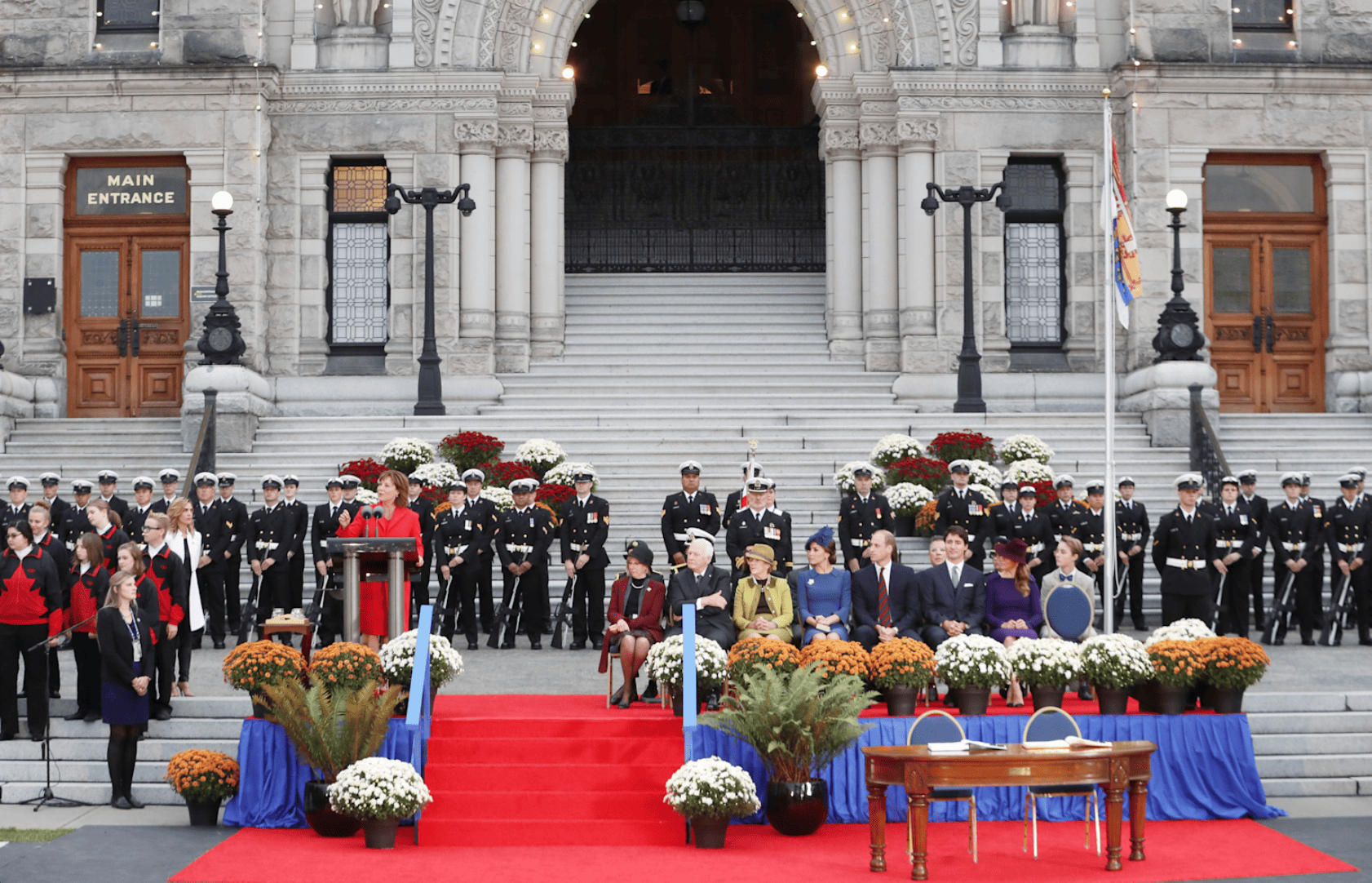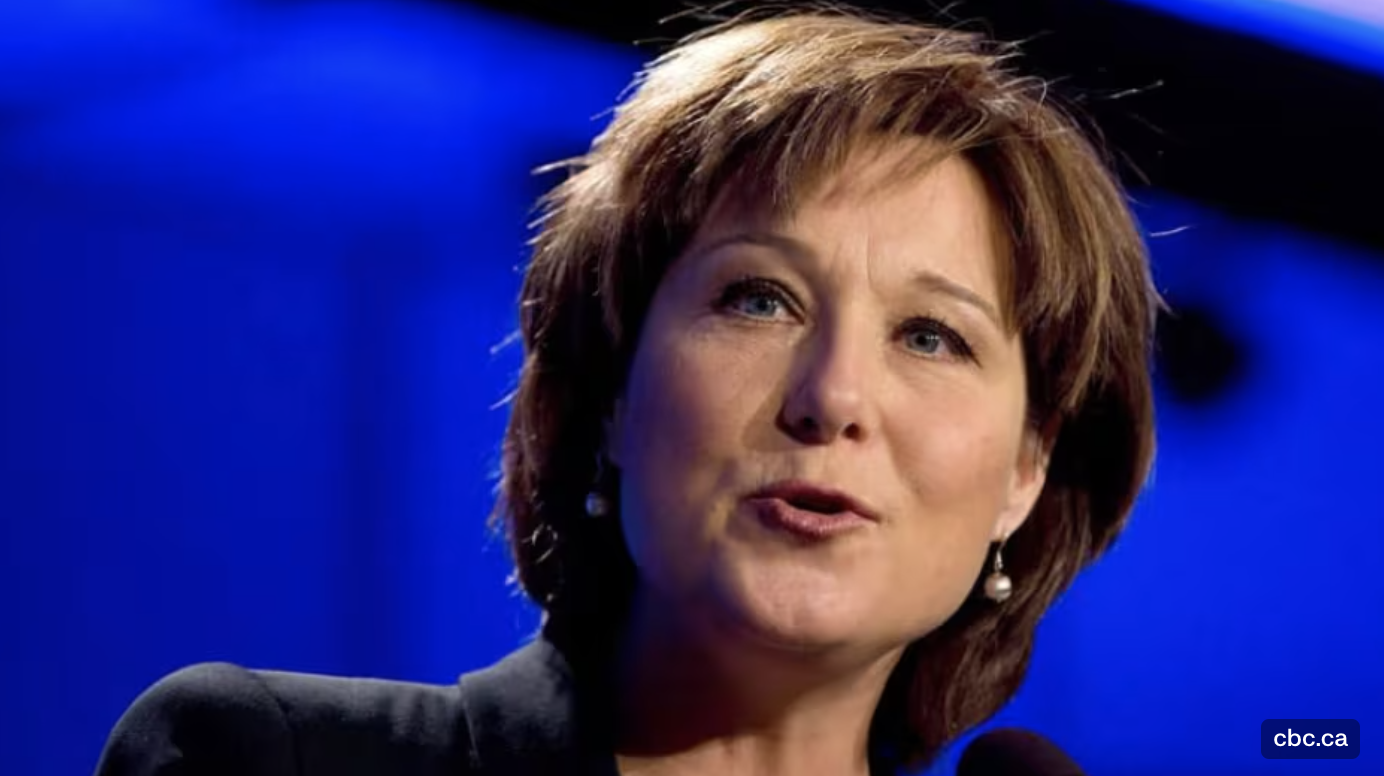
Christy Clark: BC Premier
Christy Clark, born on October 29, 1965, is a Canadian politician who served as the 35th Premier of British Columbia from 2011 to 2017. As reported by the Legislative Assembly of BC, Clark made history as the first woman elected as Premier in 2013 and the first woman re-elected to that position in 2017.
Longest-Serving Female First Minister
Christy Clark stands out as the longest-serving female first minister in Canadian history, leading British Columbia from 2011 to 2017.
Her remarkable tenure of over six years highlights her ability to navigate and succeed in a highly competitive political environment.
During her leadership, Clark focused on promoting economic growth, positioning British Columbia as a leader in natural gas exports.
She also prioritized job creation through initiatives like the Skills for Jobs Blueprint, which aimed to align education with labor market needs.
Furthermore, Clark advocated for balanced budgets, ensuring fiscal responsibility while investing in critical areas like healthcare and education.
Her commitment to sustainable development and fostering innovation further strengthened British Columbia’s economic and environmental standing.
Clark’s leadership legacy underscores her ability to deliver results while maintaining a clear vision for the province’s future.
- First woman elected as Premier of British Columbia in 20132
- First woman re-elected as Premier in British Columbia in 20172
- Led British Columbia to become Canada’s economic leader for three consecutive years3
- Maintained British Columbia’s AAA credit rating throughout her premiership3
Clark’s record-breaking tenure as a female first minister highlights the progress made in women’s political leadership in Canada, while also emphasizing the ongoing need for greater gender equality in politics4.
Leadership of BC Liberal Party
Christy Clark’s leadership of the BC Liberal Party began in 2011 when she won the party’s leadership race following Gordon Campbell’s resignation1. Despite initial challenges, including inheriting a divided caucus with only one MLA supporting her bid2, Clark successfully led the party to a surprising victory in the 2013 provincial election2. Her campaign focused on promises of a “debt-free BC” and the potential economic benefits of a new liquefied natural gas (LNG) industry2.Clark’s tenure as party leader was marked by both successes and controversies. She steered the party through tumultuous times, maintaining its position in power until 20173. However, her leadership also faced criticism, particularly regarding campaign finance practices, which The New York Times labeled as the “wild west” of political cash1. The 2017 election resulted in a minority government situation, with the BC Liberals holding 43 seats, ultimately leading to Clark’s resignation as party leader and departure from provincial politics1.
Pink Shirt Anti-Bullying Campaign
The Pink Shirt Anti-Bullying Campaign began in 2007 when two high school students in Nova Scotia stood up against bullying.
They acted after seeing a classmate harassed for wearing a pink shirt, turning a small gesture into a powerful statement.
Since then, the campaign has grown into a global movement, inspiring people to take action against bullying in various settings.
Pink Shirt Day is now observed annually in Canada on the last Wednesday of February, spreading the message of kindness and respect.
The campaign focuses on raising awareness, educating communities, and fostering inclusive environments in schools, workplaces, and beyond.
Additionally, it encourages individuals to speak out against bullying and support those affected, creating lasting positive change.
Through simple yet impactful actions, the Pink Shirt Campaign continues to unite people in the fight against bullying worldwide.
- Encourages participants to wear pink shirts as a symbol of support for anti-bullying efforts2
- Raises funds for anti-bullying programs, with over $2.55 million distributed since 20084
- Expanded internationally, with countries like New Zealand adopting the initiative3
- Focuses on combating various forms of bullying, including discrimination based on sexual orientation and gender identity5
- Promotes the idea of being an “upstander” rather than a bystander when witnessing bullying6
The campaign’s success demonstrates how a simple act of kindness can evolve into a powerful movement for positive change, inspiring individuals and communities to take action against bullying and promote inclusivity14.
Pink Shirt Anti-Bullying Campaign

Christy Clark’s tenure as Premier of British Columbia was marked by a strong focus on economic growth and job creation. Her government implemented the BC Jobs Plan, which targeted eight critical sectors including forestry, mining, oil and gas, and technology1. This initiative, coupled with disciplined fiscal management and infrastructure investments, helped propel BC from ninth to first in job creation among Canadian provinces1.Key economic policies and initiatives under Clark’s leadership included:
- Raising the minimum wage from $8 to $10.25 per hour2
- Introducing a balanced budget for the 2013-14 fiscal year, which included a tax increase for high-income earners2
- Promoting the development of a liquefied natural gas (LNG) industry as a major economic opportunity2
- Growing BC’s tech sector by 16%, increasing its contribution to the province’s GDP from 5% to 7%1
- Attracting major tech companies like Amazon, Microsoft, and Sony to establish operations in BC1
- Implementing a Foreign Buyers Tax on Metro Vancouver property purchases to address housing affordability concerns2
Despite these efforts, Clark’s economic policies faced criticism for potentially exacerbating income inequality and relying heavily on resource extraction industries23.
